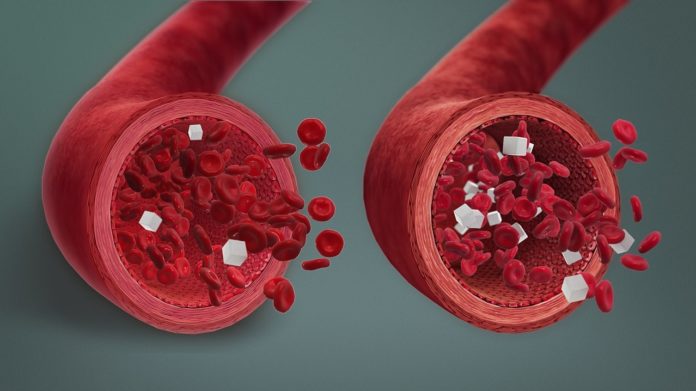Zucara Therapeutics is developing a new drug aimed at reducing the intensity and frequency of episodes of low blood sugar episodes among Type 1 diabetes (T1D) patients, who depend on insulin.
Low blood sugar, also called hypoglycemia, is a major hurdle in safely managing diabetes with insulin. Side effects include anxiety, headaches, confusion, and nausea. Severe episodes significantly affect the patient’s quality of life, ramp up care costs, and can even be life-threatening.
It’s quite easy to slip into a hypoglycemic state, since eating too little, exercising a lot, or simply miscalculating your insulin intake can all trigger an episode. The average T1D patient experiences two mild episodes per week.
There is currently no therapy to prevent hypoglycemia. Patients must manually respond when an episode arises by eating sugary or starchy foods or taking glucagon — a hormone that helps the body release stored sugars into the bloodstream. This is far from ideal since the patient still endures a potentially dangerous episode.
Zucara’s goal is to create a long-term therapy that can prevent hypoglycemia in T1D patients. Pre-clinical trials with their first-in-class drug candidate, ZT-01, have shown great potential with restoring the regulation of blood sugar and reducing the impact of hypoglycemia.
The company’s early development was assisted by the Centre for Drug Research and Development (CDRD) and MaRS Innovation, and the treatment is based on the groundbreaking research by the University of Toronto’s Mladen Vranic.
Opening new doors for treatment
The technology’s spark came from work done by Vranic and his research team. They found evidence that pancreatic cells are impaired in people with T1D due to high levels of somatostatin, a hormone that regulates the production of other hormones including glucagon.
They discovered that by using novel molecules capable of blocking somatostatin receptors, they were able to restore the normal response to hypoglycemia.
Vranic, who passed away in 2019, was a post-doctoral fellow under Charles Best (one of the co-discoverers of insulin) before embarking on his own accomplished career in diabetes research.
“With years of scientific investigation and strong, validated evidence behind this technology, we are now preparing to move into human trials and make a real difference for patients suffering from hypoglycemia,” commented Vranic in 2016.
Translating the academic findings into a commercially viable technology required its own work, and MaRS Innovation assisted early on in this process. The CDRD led the pre-clinical drug development, which ultimately led to the founding of Zucara.
Commenting on the foundation of Zucara in 2016, CDRD CEO Karimah Es Sabar noted that the launch was “…an excellent example of how many partners can work together, leveraging complementary strengths, and sharing risk and reward to translate and commercialize an innovative and much-needed therapeutic.”
“We are extremely proud of the work the CDRD team did to successfully incubate the technology and co-lead commercialization efforts alongside our partner, MaRS Innovation.”
Phase 1 of clinical trials
The company is currently prepping to move into Phase 1 of clinical trials this year with ZT-01 and announced an additional $21 million in funding from Perceptive Xontogeny Venture Fund.
“We are delighted to receive this support from the PXV Fund, which we believe is a testament to ZT-01’s potential to make insulin-induced hypoglycemia — a constant risk and concern for patients using insulin therapy — largely preventable,” said Zucara CEO Michael Midmer in a statement.
“We are very grateful to the foundations and venture accelerators that helped us bring ZT-01 to this stage of development, and now, for PXV Fund’s support, which ensures we are well-positioned to advance ZT-01 through a Phase 2 clinical trial.”
This new round of funding arrives close to the centenary of insulin’s discovery at UofT in 1921. With the academic legwork completed and commercial development for ZT-01 still underway in Toronto, the next innovative leap in diabetes management could once again be Canadian.








































